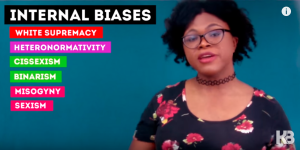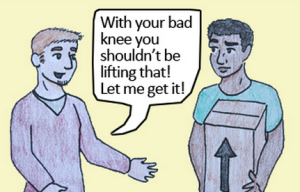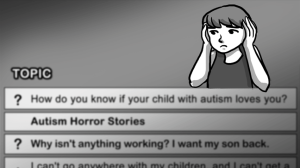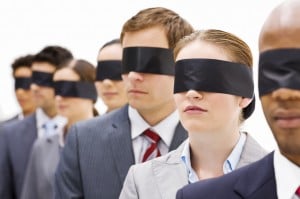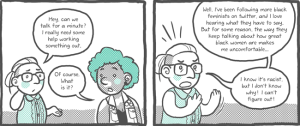Originally published on The Huffington Post and republished here with the author’s permission.
When we think about issues of consent, there are many thoughts that come to mind.
Immediately, we think of the “No Means No” slogans and things of that nature.
Consent has become a hot topic nowadays in many social justice circles when we talk about body positivity and the like – everyone wants to make sure our bodies are respected, as they should be.
But when we talk about issues of consent when it comes to Persons with Disabilities though, we only seem to touch on one piece of that equation alone: The risk associated with being a vulnerable Person with a Disability.
We always associate disability with risk, and this is no more apparent than in discussions around sex and sexuality.
Let’s be clear: Considering the fact that once I am out of my chair and in bed, I am stuck lying on my back in the “dead turtle” position, issues of consent for Persons with Disabilities cannot ever be ignored or forgotten. The truth is that I am more vulnerable when I am out of my chair, no question.
That said, there are so many other aspects of consent that can impact and shape the sexual experience for PwD.
I was reading my friend and fellow disability advocate’s blog, and I came to understand there is an emotional component to the concept of consent that the Cripple must contend with, and I want to explore that with you now.
Do you remember when it was holiday time at your house, and just how excited you were as a kid on Christmas morning to open the presents under the tree?
You know the feeling: that tinge of excitement that went all the way to your toes, and when you finally ripped through the wrapping paper to reveal your gift, you started uncontrollably running around the house shouting, “Christmastime! Christmastime!”
I have a confession to make: When I see an opportunity to access my sexuality, that tinge comes rushing back to me. The anticipation and pureness of the possibilities that await surge within me.
If I am being truthful with you readers, although I talk and work in the field of sex and sexuality for Persons with Disabilities, I don’t get it as much as I would like (and you’re thinking a few things here: 1. Andrew, you’re so hot, how is that even possible; and 2. Andrew, who is getting enough? Preaching to the choir!).
Sex with a disability is sometimes a sporadic event that involves a lot of planning and discussion, and reassurances that you won’t break me (but no promises I won’t break a piece of yours).
So, when it comes around, I’ll admit I am ravenous, and while I have never rejoiced that it’s Christmastime to a prospective playmate (I think), I have been pretty close. If I could do cartwheels like those kids in the holiday vids after finding out they got an X-Box, I would.
As such, issues of consent can look a little bit different for Persons with Disabilities when they are trying to access their own sexuality:
1. If you knew that you might only get to lay with another individual and be seen as a sexual being only once every 3-6 months if all the stars aligned, the idea of consent may take a different shape.
If you knew that this moment of touch might be one of the only moments you had to feel some semblance of humanity, wherein you were not simply a consumer to be cared for, things may look differently.
This interaction carries so much weight; it is a link to normalcy, it is a connection with someone who could possibly see that all that innuendo bubbling beneath your surfaces, might just being you asking to let your sensuality be unleashed, as it so often sits strapped in your chair, waiting to pounce.
It is a moment that you have fought for and negotiated, so when it finally happens, you may feel as though “whatever happens, happens,” and you mustn’t let it go.
The fight between comfort and consent often plays out here.
So often, I have been much more concerned with my partner’s needs, desperately attempting to ensure that they don’t take a bite out of the Deliciously Disabled Delicacy that is me for the very first time, and are left with a bad taste in their mouths.
You want more than anything to simply bask in the glow of this moment, fearing its finality, but it is important to remember that you have a say in what happens here.
I’m learning that my comfort in these situations does matter, and if they can’t handle it, then it wasn’t worth my time.
This is a course of study I am continually being tested on.
2. As a PwD, when I say yes to your being with me intimately or sexually, I am putting a whole lot of trust in you as a person – even if we’ve just met.
I’m showing you a side of myself that scares me, that reminds me of just how much help I need in this world.
I’m admitting to you that I need you in this instance, and that I’m indeed delightfully different from you.
I’m trusting that after the passionate embrace cools, just as softly as you placed me in bed, you will help me out of it.
I’m exposing to you that I really am disabled, and I’m hoping you will see it for all that it is.
Permitting you to play with me, as a PwD, is an honor that one should not take lightly.
Not only am I giving you a piece of me (puns definitely intended), I am changing your worldview on PwDs, and allowing you to see a part of my life that I am often ashamed of, and that means so much more to me than some one-nighter or hookup.
It is clear that consent can definitely constructed differently when one has a disability. It isn’t as simple as yes or no.
There are all these other compartments we, as PwD must attempt to contend with, while also staying sexy and seated: the fear that not taking what is on offer means you get nothing at all, jostling with the worry that if you in fact let someone into your world, they’ll want nothing more than to be let out.
This post originally appeared in The Mobility Resource, and can be read here. To find out more about Andrew’s work as a Disability Awareness Consultant, and join the #DeliciouslyDisabled movement, please go to www.andrewmorrisongurza.com.
[do_widget id=’text-101′]
Andrew Morrison-Gurza is the Founder/Co-Director of Deliciously Disabled Consulting, where he strives to make disability accessible to everyone within pop culture and intersectional communities. Within the LGBTQ+ community, Andrew works to deconstruct our homo-normative, body beautiful ideals and show that Queers with Disabilities deserve representation. His written work has been highlighted in The Advocate, Huffington Post and The Good Men Project, where he candidly discusses the realities of sex and disability as a Queer Cripple. Follow Andrew on Twitter @deliciouslydrew.
Search our 3000+ articles!
Read our articles about:
Our online racial justice training
Used by hundreds of universities, non-profits, and businesses.
Click to learn more







